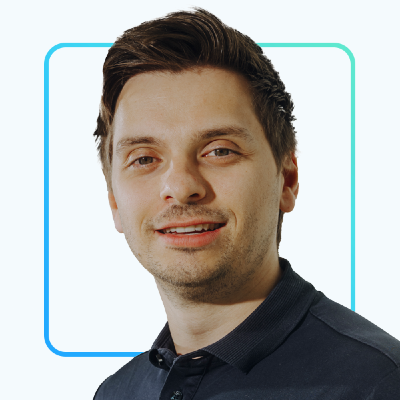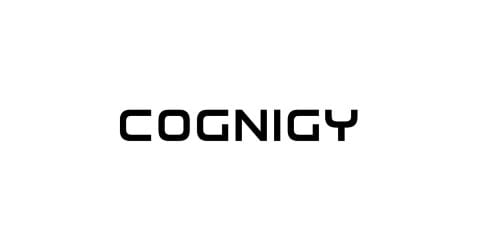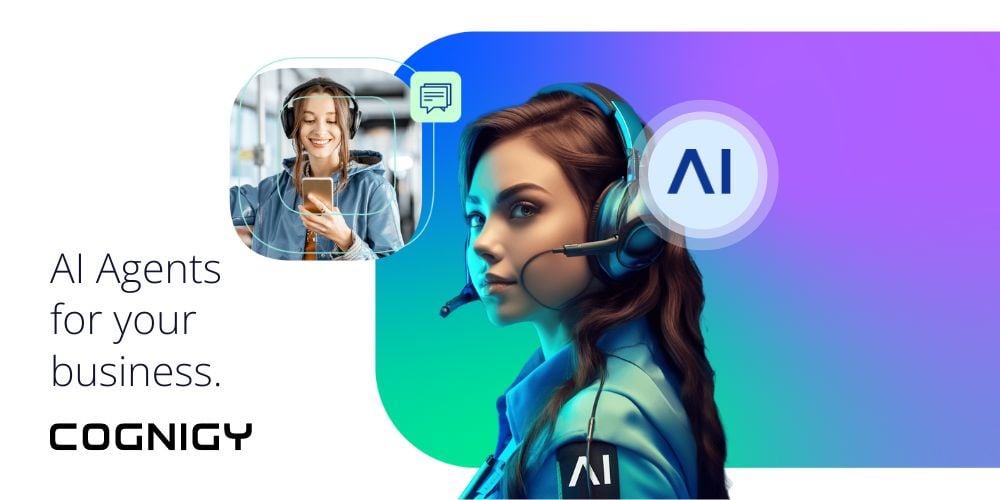Engineering Leadership Series - Benjamin Mayr


Biography
Benjamin Mayr is the Co-Founder and VP of Engineering at Cognigy. Benjamin has extensive expertise in designing and building highly scalable software systems that run on Kubernetes. His knowledge of containerized software systems is one of the driving factors behind the success of Cognigy and its products. He holds a BSc in Software Engineering and was an early adopter of containerized software solutions before this became an industry standard. Prior to joining Sascha and Philipp in their mission, Benjamin worked as a Software Consultant and developed individual software solutions for a range of different industries, including medical, automotive, gaming, and social media. Over the past few years, he has not only introduced all the relevant software development processes for an Engineering department of more than 50 people but has also ensured that Cognigy continuously delivers innovation to their customers.
More Information


The Interview
1. Tell us your story, how did you discover your interest in software engineering?
My journey into software engineering began when I was 11 and received a book about the C programming language as a gift. At the time, I was fascinated by computer games and how entire digital worlds could be created from code. That curiosity led me to start programming small games of my own, which quickly grew into a passion. As I got older, I began searching for a university where I could study game development in a more structured way. Alongside my studies, I worked as a web developer, gaining hands-on experience that complemented my academic learning. Eventually, I had the opportunity to work in the games industry itself—focusing on rolling out game clients and ensuring they were available to millions of players around the world. That experience was incredibly formative and deepened my appreciation for scalable software and user experience at scale.
2. How did your early experiences in game design and web development shape your approach to enterprise software?
Working in game development taught me a lot about building high-performance, always-on systems. Games demand real-time responsiveness and extremely low latency—players expect smooth, uninterrupted experiences at any time of day. That kind of 24/7 availability and scalability shaped how I think about software reliability and system architecture. For example, managing large multiplayer game lobbies required efficiently distributing state changes—like player positions or model updates—to all connected clients in real time. That same mindset translates directly into enterprise software, where responsiveness, uptime, and scalability are just as critical, especially as systems grow more complex and user demands increase.
3. Cognigy is a global leader in conversational AI, specializing in AI-powered customer service solutions. Your flagship platform, Cognigy.AI, enables enterprises to deliver hyper-personalized, multilingual, and omnichannel support through intelligent AI agents. What problem are you solving that the market was missing?
Enterprises needed automation that could go beyond simple chatbots. We built Cognigy.AI to deliver AI that understands context, integrates deeply with backend systems, and actually gets things done. The goal was to move from reactive customer support to proactive, intelligent assistance at scale.
4. How did the founding team at Cognigy come together, and what made you believe this idea was worth building?
The original idea actually started with a smart teddy bear, something that could hold natural conversations with kids. As we explored the technology behind it, we realized the real opportunity wasn’t in toys, it was in solving massive communication gaps in enterprise customer service. We were a team of technologists with experience in startups and global enterprises, and we saw firsthand how legacy systems were holding companies back. That pivot, from playful concept to serious infrastructure, was the beginning of Cognigy.
5. What’s a recent architectural decision at Cognigy that you’re particularly proud of, and why?
Moving to a containerized microservices architecture early on was a big one. It lets us scale across customers with wildly different needs, maintain performance, and update components independently. It gave us the flexibility to grow without compromising reliability.
6. How do you ensure AI agents maintain contextual memory and deliver truly “humanlike” experiences?
We’ve built a powerful context engine that tracks user intents, prior interactions, and backend system states across every channel. But memory alone isn’t enough. What sets Cognigy apart is how our Agentic AI uses that context to take action, resolving issues, anticipating needs, and seamlessly escalating when needed. It’s not just about remembering the past, it’s about delivering the right next step in real time, just like a human would.
7. As Cognigy has grown into a global company, how do you maintain engineering culture and technical integrity as you scale?
We hire people who are curious, humble, and obsessed with quality. We also maintain strong architectural principles, even as we grow. Code reviews, internal documentation, and regular retrospectives help us stay aligned and continuously improve.
8. What do you look for when hiring or mentoring software engineers in a fast-moving AI company?
I look for people who can think in systems, who care not just about writing code, but writing code that others can build on. Adaptability is also key. AI is evolving rapidly, so we need engineers who can learn and adapt without losing sight of the broader context.
9. How do you see the future of Agentic AI evolving, and what role do you want Cognigy to play in that transformation?
Agentic AI will shift from task execution to full workflow automation. AI agents will become trusted coworkers that collaborate with humans in real-time. Cognigy will be the platform that powers those interactions—securely, transparently, and at scale. I strongly believe that Cognigy.AI has the power to process the majority of customer interactions worldwide in just a couple of years.
10. Outside of software, is there a concept, book, or experience that has shaped how you solve problems or lead as a technologist?
Outside of software, I’ve found that playing racket sports like squash and padel tennis has had a surprising influence on how I solve problems and lead. In both sports, success comes from continuous improvement—you don’t win by going for the perfect shot every time, but by staying focused, adapting quickly, and building momentum point by point. That mindset translates well into building technology: break challenges into manageable steps, keep improving, and stay disciplined in execution. Books like Clean Code and Clean Architecture have also shaped how I approach systems thinking—valuing clarity, structure, and incremental design. And over the last eight years building Cognigy.AI, we’ve taken that same iterative mindset: solve one problem well, learn from our users, then move on to the next. It’s about steady, focused progress rather than trying to solve everything at once.
11. What advice would you give to your younger self?
I’d tell my younger self to stay focused and double down on what you’re best at. Don’t try to do everything—find others who share your drive and can complement your strengths. It’s just as important to recognize your own gaps, and either work to improve them or bring in people who can challenge and support you in those areas. And most importantly: invest your time wisely. The way you spend your time, especially early in your career, compounds quickly. Choose projects, people, and environments that push you forward.
12. When you’re 80 looking back, what do you want to have accomplished in your life?
When I’m 80 and looking back, I hope I’ve played a meaningful role in transforming how people interact with technology—especially in customer service. I want a future where no one has to wait endlessly in a queue to get help, where engaging with brands feels intuitive, even enjoyable, and where people get their issues resolved quickly so they can focus on the things that truly matter in life. If we’ve helped save people time, reduced frustration, and made technology feel more human and helpful—that’s something I’d be proud of.
We hope you enjoyed this interview. If you would like to be featured in a future interview, please contact our team at innovationinsider@donestreet.com.
To learn more about DoneStreet and why our customers love us, follow this link.
Spend Less Time Hiring, More Time Building. Hire With Confidence Through DoneStreet.
If you have not yet subscribed, please hit the subscribe button and let us know what types of content you’d like to see more of in the future.
Thanks for reading Innovation Insider - Presented by DoneStreet! Subscribe for free to receive new posts and updates.



